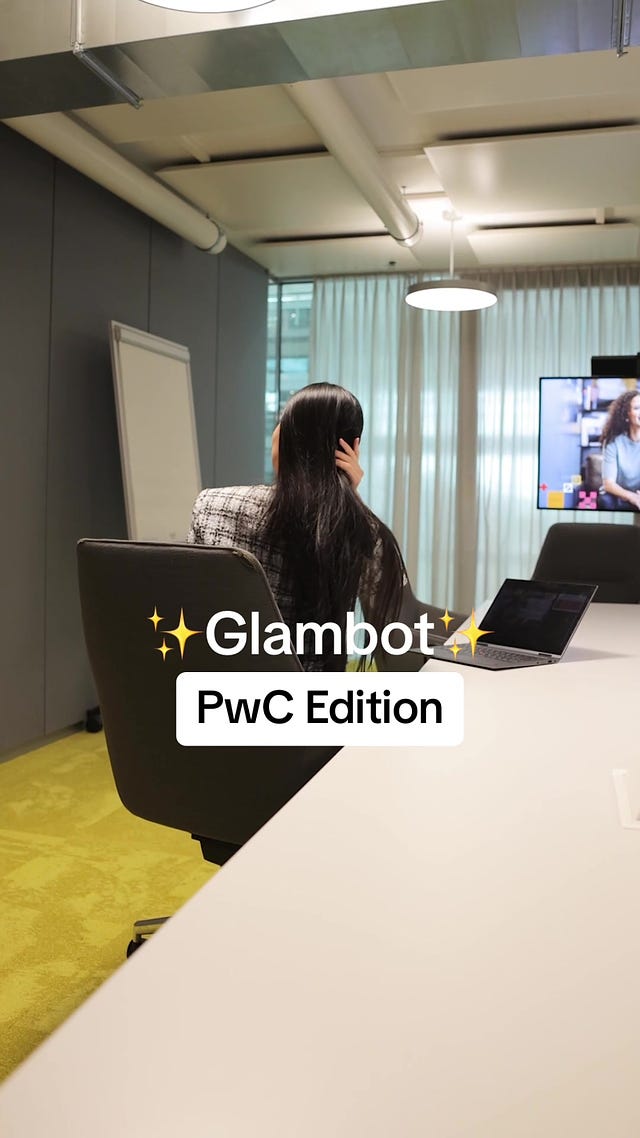Hello!
Thank you for joining me, I’m so glad you’re here.
Not to sound like a millennial here, but I did a lot of adulting this week.
Firstly, I finally got my hands on an energy smart reader. I’ve been on the waiting list for one of these bad boys for nearly 3 years, and I think my commitment to being terrible at submitting readings this year really sealed the deal and made my energy company give in. I’m looking forward to getting involved in the energy challenges and shenanigans my energy provider puts on.
Secondly, today I had a new dishwasher delivered, as my last one packed up a few weeks ago. The one I chose has an app, so I can smugly start a cleaning cycle while I’m in the office, taking advantage of the low energy rates during the day even when I’m not there. My new machine has an energy rating of C, so I’m looking forward to seeing the difference it makes on my new smart reader!
Being a grown-up sure is fun…!
Today I had a few things floating around my head, so instead of a one-subject newsletter I decided to do a bits and bobs one!
Apprenticeships in 2024
I’m a little out of the apprenticeship world these days as my last role was 100% employer brand and my role before that was 100% graduate recruitment, but I’ve been having a few conversations with people recently that made me think that perhaps the state of apprenticeships might be a little worse than before.
In speaking with other people in the early careers world, it seems that there is a bit of an uptick in apprentices being on fixed term contracts, which is a bit of a risky game to play. Sometimes apprentices don’t finish within the set timeframe; perhaps they need a bit more support, so guessing an appropriate time to require them to complete is a bit of a challenge.
It’s also a little stingy; the whole thing with apprentices is that they are treated like regular employees, and having people on conditional contracts doesn’t feel like treating people like regular employees. Unless you’re in finance, or insurance and your job depends on your progress through that qualification journey, I guess?
I was reading some Reddit posts from apprentices this week, and it occured to me that salaries haven’t really changed that much in the last few years. In 2024, the average graduate salary is £38,500 [Save the Student] which is up from £32k ish when I was last setting salaries for grad programmes a few years ago. Apprentice salaries are still around £22k [Institute of Student Employers] with degree apprentices coming out around £23k [Save the Student].
When I have set apprentice salaries in the past, my rationale has been that a degree apprentice, on completion, should be at the same salary as a graduate. So, if you are paying a degree apprentice £23k, and your grads are on £35k then in the 5 years it takes for the apprentice to do their qual they would need to have a £12k pay rise (or adjust the salaries so it is more of a reasonable jump). I’m not sure if other people also think in this way but it feels logical to me, but it does feel that apprentice salaries haven’t really kept up with graduate ones.
There is often a mindset of “cheap labour” when it comes to apprentices, that isn’t seen in graduates, and I think that this might be why apprentice salaries aren’t keeping up. Orgs are willing to pay a lot for high calibre graduates and interns (more on that in a moment) but I rarely see orgs upping apprentice salaries to attract better candidates.
My new role will see me working with apprentices again, so I’m keen to get more of a working knowledge of where we’re at in 2024; in the meantime please do write in and let me know your thoughts!
Gen z and boycotting employers
So this week Business Insider ran an article on how gen z are doing more research into employers, and rejecting those that don’t align with their values. I wrote a newsletter about this earlier this year, which you can read here:
What makes this newsworthy again is that thanks to the Israel/Hamas conflict, more organisations are being boycotted by people both as consumers and also as employees, with some notable orgs being McDonalds, Starbucks [Time], and L’Oreal [BDS Movement].
The Business Insider link above includes a TikTok video of a Starbucks employee saying that as they’re working out their notice period, they’re judging everyone still buying from the company:
In the UK, Birkbeck Uni also bans fossil fuel companies from its career fairs [Guardian], which was widely discussed when the decision was made last year. I had wondered if this would grow as a trend but it doesn’t seem to - unless I’m mistaken?
I’m glad that gen z are sticking to their values with things and I think having defined values boundaries when looking for work is important. But it’s not going to be the case that we can only work at ethical companies for our whole career. I wonder if we should be better managing their expectations around this?
Early career salaries
It’s always good to keep an eye on the US as we in the UK tend to be only a year or so behind them, though famously the UK pays much worse than the US (IMO I still wouldn’t take that increased salary in exchange for the weak working rights!)
Fortune reports this week that some interns in the US are experiencing amazing salaries, with some organisations like Amazon and Roblox paying $9000 a month.
Now, we can’t take a handful of employees’ experiences as a trend, especially as recruiting for early careers on the East Coast is a completely different ballgame, one that often involves things like sign-on bonuses of $1000s to get interns to commit to joining as grads. But I do think there is something around the going rate for top grads increasing.
Here in the UK, Targetjobs reports that graduate salary expectations are the highest they’ve been for 5 years, and that 70% of students are concerned about money. I feel like a broken record, but I really think we need to be pumping out more content around how early career employees break down their budgets, and what life looks like on different salaries.
Targetjobs also say that the demand for grads is slowing just by 1%, but it’s an already tight market for ambitious grads. Those with desirable skills will be able to access these top roles, but I think the majority of grads for the moment will be on the typical low-paid starter jobs. It’s also a good reminder that just because someone is a grad, it doesn’t mean they should just go for grad roles, and that applying to regular roles is also important.
Going above and beyond to get a job
On that note, I spotted this post on Reddit, where a graduate was offering £5000 to anyone who hired her and found they don’t like her:
In the comments they mentioned that the person from the post is an international student, which would make her job search even harder. But regardless, I think that people shouldn’t be at the point of offering to work for free and to pay compensation if they org doesn’t like you.
Not a gen z-er, but I spotted on LinkedIn this week someone posting a link to a role at Netflix, publicly listing why they’re a great fit for the role. At the time of writing, the post has over 16,000 likes, and almost 900 comments of people cheering him on or offering help.
On one hand, I think it’s a really neat way to get seen by the company - especially as it’s Netflix and would have a gazillion applicants. But on the other hand I feel sad that people have to go to these measures to be seen.
It would be sad if the job market, especially for grads, turned into a competition of who could make the most outlandish gimmick to stand out. Using creativity is one thing, but where should the line be drawn to ensure that those who are more shy, awkward etc and who aren’t as able to go all out to be seen - will be equally considered?
Commuting
Lastly, this week I listened to an interesting podcast from the Financial Times about the rise in people doing longer commutes. It was interesting to learn that more people are travelling further a couple of days a week, but are perhaps being flexible within the working day, for example leaving early to drive home.
It was a shame that they focused on dudes, as I think hearing how primary caregivers (mothers) are balancing things would be interesting, but also I’d love to hear about how those entering the job market are deciding where to work and how far they’d travel.
Just as I was reading up on things before starting today’s newsletter, I found a Reddit post from a grad saying they have a 4 hour return commute, and in this case they’re choosing to live at home and save money.
My experience hiring grads is that it’s really hard to get them to agree to any office outside of London (which I find bonkers, given the awful housing market there), so I wonder if there’s something around grads being inflexible in location when they don’t have any commitments tying them down.
As always, please do get in touch if you have thoughts on any of today’s bits and bobs!
Links
It’s going to be TikTok and LinkedIn heavy this week as I clear out my saved posts!
I guess after last week’s post analysing PwC’s employer brand, they’re following me around on TikTok as this video came up on my For You Page:
I’m not sure what the aim is here, or how effective it would be, but it looks like fun!
My heart broke a little this week when my buddy Kyle posted on LinkedIn about how much students are worried about making the right university choice. I am sure this is also true of graduate options, and I wish they would know that there are no right or wrong answers to any of this, and that they shouldn’t be under this much pressure to get things “right”.
M&S are putting out kinda crappy job adverts:
Whereas Lego are still on fire, busting out great employer brand content like this [LinkedIn].
A chap called Alec started a series on TikTok telling stories of boomers “being lazy” in his office, but then was fired for it:
He’s now switched his account to sharing stories from other people, anonymously so they don’t get fired.
Finally, healthcare company Zoe went super transparent recently, sharing the email they had sent to people they are potentially laying off [LinkedIn]. What was interesting about this was the backlash in the comments both from people disagreeing with how things are done, and also with the product itself. I guess there is no right answer when it comes to redundancies.
That’s it for me, as I enter my last week of Funemployment!
Until next week,
Charlotte











